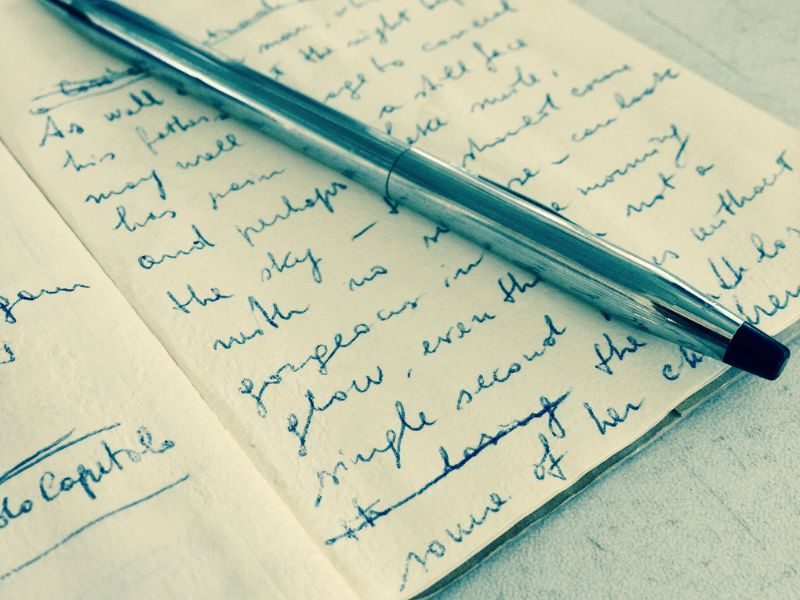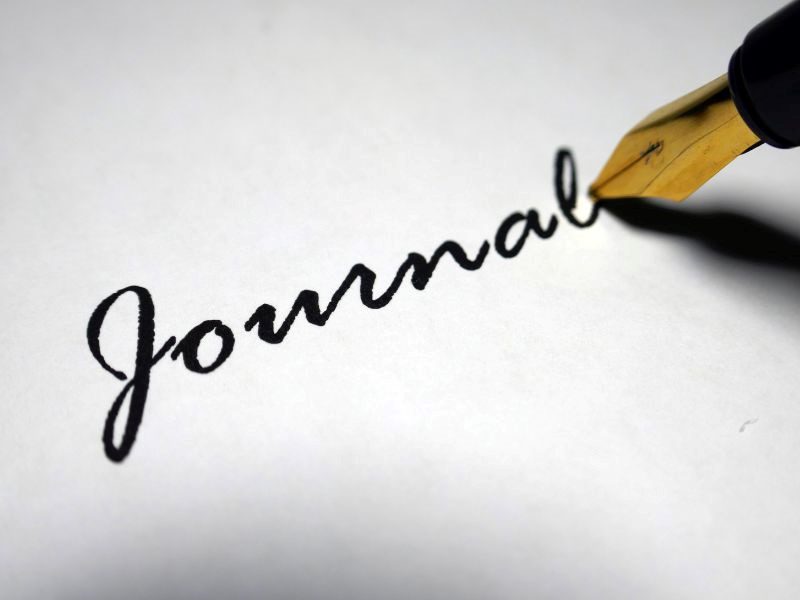I’m not a therapist but, to me, journaling is one of the best ways to improve my mental health. That’s because it gives me a safe place to dump my thoughts and feelings, without fear of judgment. It’s also helpful for exploring my thoughts and feelings, and for tracking my progress.
If it helps me then why shouldn’t it help you? So if you thinking…even if I want to, where do I even start and what do I even write about? Then read on, as I am sure you will appreciate some of my personal journaling topics for mental health.
Benefits of journaling mental health
Journaling can be an extremely beneficial tool for mental health as it can help to process and release emotions, works through traumas and difficult experiences. It develops a greater sense of self-awareness and understanding.
For me, journaling is a way to connect with my inner thoughts and feelings, and to explore the depths of my psyche. In addition to providing emotional relief, journaling can also help to improve cognitive functioning.
For anyone struggling with mental health issues, much like the benefits of reading, journaling can be a powerful tool for healing and self-care.

Scientific benefits of journaling
There are many scientific benefits of journaling, for example, journaling can help to reduce stress and anxiety, improve mood, boost self-confidence, and increase self-awareness [1]. Additionally, journaling can help to provide clarity during times of transition and uncertainty.
It can also be a valuable tool for processing difficult emotions and working through traumas, which I personally advocate. Ultimately, journaling is a way to connect with you on a deep level and gain insight into your thoughts, feelings and experiences.
Does journaling work for anxiety?
I started journaling as a way to process my emotions and sort out my thoughts. It was helpful and it’s still helpful now, somewhat. Whenever I’m feeling anxious or stressed, writing in my journal helps me to get all of my thoughts down on paper.
It’s like unloading a heavy backpack that I’ve been carrying around all day. After I’ve written everything down, I feel lighter and more capable of dealing with whatever is making me anxious. In addition, journaling has helped me to gain a better understanding of myself and the things that trigger my anxiety.
By keeping track of my thoughts and emotions with no one judging me, I’ve been able to identify patterns and try to make changes in my life to help reduce my anxiety levels. I have not perfected the art as yet and I still am trying to process journaling as a tool to help me overcome my anxiety.
However, it does comfort me and makes me feel better equipped now to deal with this thing called life.

Writing about grief and loss
I lost my son on the 11th March 2020; he had cerebral palsy, a severe type of special needs. I miss him every day. I think about him all the time. I never thought I would have to experience this grief, this loss and once it happened I never dreamed I would be writing about it.
I never thought I would be burdened to find the words to express the depth of my pain but here I am, a mother who has lost her son. And I am weighed down to find the words to express my unfathomable sorrow.
I keep trying to make sense of a world that has been turned upside down and I’m fighting for the strength to keep going. But I am also finding strength in the act of writing about my grief. Writing about my loss is helping me to process my emotions and to make sense of my new reality.
It is helping me to connect with others who have experienced similar losses and it is helping me to find moments of hope and healing amidst the darkness. To find purpose again, to go on for others who still need me and to find out who I am now, now that I am not me anymore.
How do you journal about the death of a loved one?
I need to remind myself that it’s okay to not be okay. I need to remind myself that I am allowed to mourn and that I am allowed to grieve. When I am faced with the reality of my son’s death, all I can think about is how unfair it is and how much I miss him.
But I have to keep going. I have to keep living. And so I need to journal. I write and I will write about the good times as well as the bad times. I will write about happy memories and sad memories. I will write about everything and anything that comes to mind.
And in doing so, I will remember my Jaden, my first-born, my most adorable companion…my sweet, sweet boy 🙁

PTSD journaling prompt
I watched my son dying. Every night I am in that ICU ward, watching my baby slip away while I’m dragged screaming away from him. Every day, I relive that nightmare.
I feel like I’m losing my mind and I miss him so much. I just want to curl up in a ball and cry but I can’t because I have other children who need me. So I just keep going through the motions, living in a fog, hoping that someday this will all be a bad dream. But I am trying something different and I am writing about it all.
Writing has always been therapeutic for me. It is a way for me to make sense of the chaos in my head and to work through my emotions. So often, our society tells us to bottle up our feelings and to move on with our lives. But that is not always possible or healthy.
I don’t always allow myself to feel all of the pain, anger and sadness that come with those memories. However, I have to so I will wake up and face another day. I have researched that one of the most effective ways of dealing with PTSD is through journaling [2].
When you write about your experiences, it can help to process them and make them less daunting. It can also be a way of expressing emotions that you may not feel comfortable talking about with others (true story).
Helpful prompts if you are struggling to know what to write about:
- What are the main triggered memories or events that cause you distress?
- Write about a time when you felt safe and calm. What were you doing? Who was with you? What made you feel that way?
- What are your physical reactions when you’re feeling triggered or stressed? Do your muscles tense up? Do you start to feel panicky or disconnected from reality?
- What emotions do you associate with your triggers? Anger? Sadness? Fear? Guilt? Shame?
- Have there been any changes in your behavior since developing PTSD? Are there certain things that you avoid because they make you uncomfortable?
- How has PTSD affected your relationships? Have certain friendships changed or ended because of it? Are you more withdrawn from loved ones than you used to be?
- What are some things that help you to manage your symptoms and feel better when you’re struggling? This could include things like exercise, nature, music, breathing exercises, or spending time with family.
Journaling can be a very powerful tool for managing strong emotions so why not PTSD? Maybe taking the time to explore your emotions can help to lessen their hold. However, if you find yourself struggling, reach out to a therapist or counselor who can provide additional support.

Journaling ideas for beginners
If you’re thinking about starting a journal, but feel like you have no idea where to start, don’t worry. You are not alone with that feeling, I am a writer and even I had trouble starting! Many people feel they need to have deep thoughts or world-changing insights before they can start journaling, heck no!
All you need is you…here are a few ideas to get you started:
1. Childhood memories
What stands out most from your childhood? Like good or bad moments or people who influenced you.
2. Relationships
Family, friends, romantic partners. What are they like? How do they make you feel? Write about the Positive/negative aspects of each relationship.
3. Self-care
What do you do to take care of yourself? Is there any self-care activities that help reduce your stress levels or make you feel better?
4. Hobbies and interests
What are your favorite hobbies or activities? Why do you enjoy them? Do they bring you happiness and fulfillment?
5. Goals
What are your goals for the next year/five years/ten years? How can journaling help you achieve them?
6. Difficult times
When have you been through the toughest time in your life emotionally speaking? How did/do you cope with it/them? Bereavement, job loss etc.
7. The good days
The days where everything just goes right 🙂 ,write about what made these days so great like a momentous occasion, event etc.
8. Mental health diary
This one is a little more personal – keep track of how your mental state fluctuates day by day (for example – happy, anxious, stressed etc. or mood swings, triggers etc.). This will help you track patterns and see how specific events or situations impact your mental health overall.
Whatever approach you choose, it’s entirely up to you how you want to use your journal, so don’t be afraid to experiment until you find what works best for you. And who knows? Maybe one day your own words will inspire someone else to start their own journey of self-discovery through journaling which is my hope with my words one day.

Final thoughts on journaling topics for mental health
So there you have it, my journaling topics for mental health. I hope this was helpful and that you found at least one topic that sparked your interest. If not, feel free to message me and I’d be happy to brainstorm some more ideas with you.
Journaling is such a personal practice so it’s important to find topics that resonate with you on a deep level. Keep in mind that you can always change up your topics as needed – there are no rules when it comes to journaling! Just make sure to be honest with yourself and write from the heart.
Good luck!
